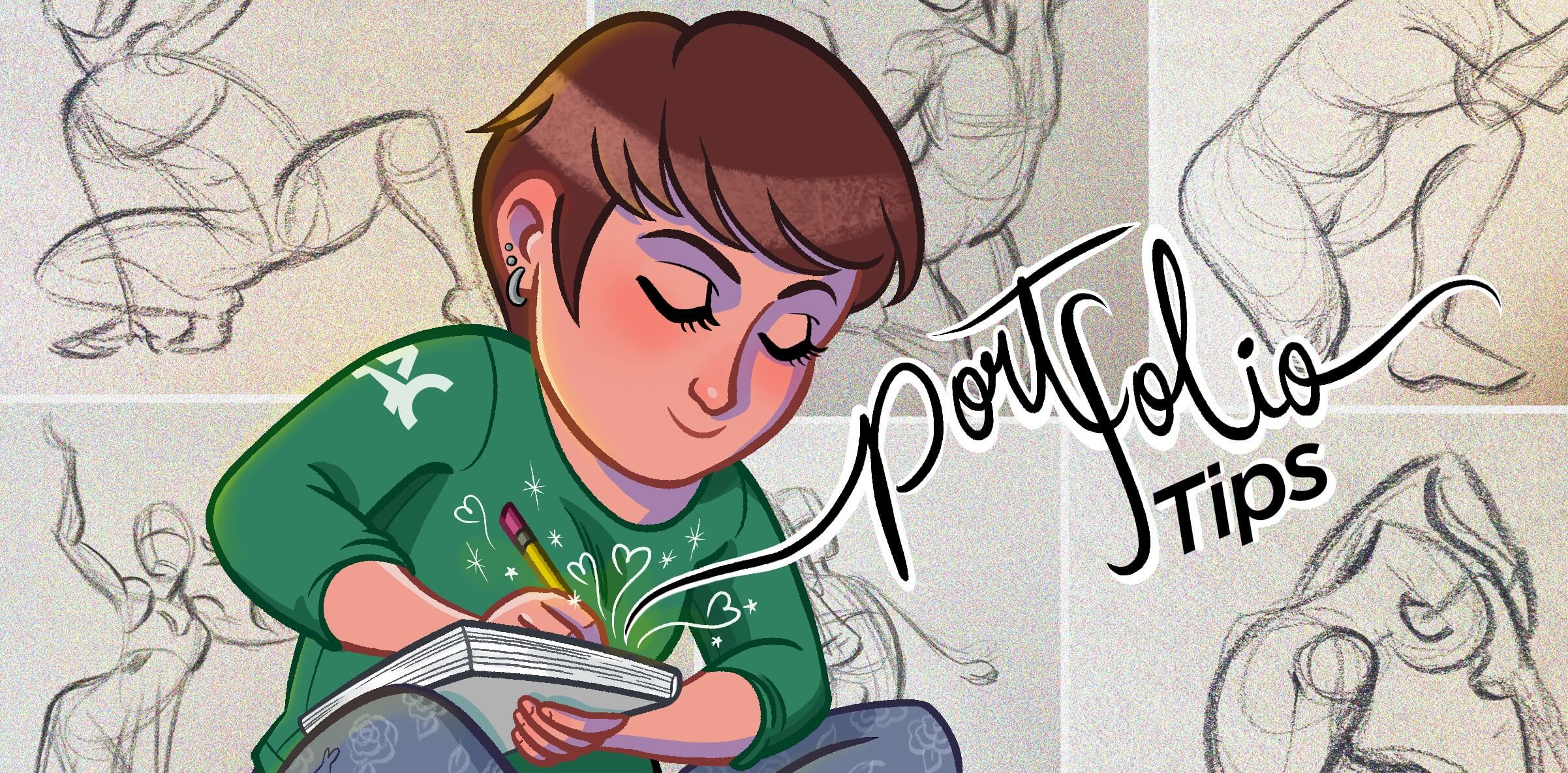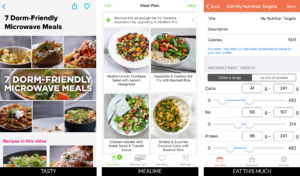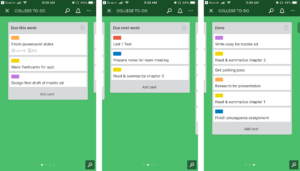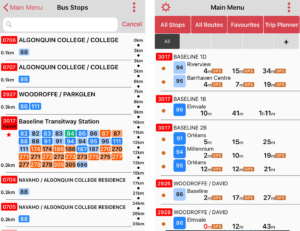We’ve heard that many students are intimidated by portfolios, their requirements and by not knowing exactly what they should do or how to get started. Sometimes students are even opting not to apply to their preferred program because it required a portfolio, and they were overwhelmed by the idea of putting it together. We want to help!
I spoke with ACX Team Member, Julia Pinto, a third-year student in the animation program at Algonquin College and got some advice from her about pulling together a portfolio which will hopefully assuage some of your concerns and help you feel excited and motivated to create your own.

What types of programs require a portfolio?
Typically, arts and design programs are the ones that require a portfolio for the application process. At Algonquin College the Graphic Design, Illustration, Animation, Interior Design, and Interior Decorating programs all require a portfolio. Programs that require a portfolio usually call for demonstrations of understanding of some techniques and practices that are very common in the study of various art fields.
What are the typical portfolio requirements?
Portfolios, whether for a job or for school, showcase your ability to work within constraints; illustrate your process; feature your problem-solving aptitude, your communication skills, and your creativity — not only your raw talent. They help the college determine if you are the right fit & can accomplish the work that you will encounter in your program of study.
1)10 – 15 pieces of original creative work. Originals can include things like pen & ink or pencil drawings, sketches, drafting, collages, as well as photographs of larger mediums (oil, acrylic, watercolour, sculpture, pottery, jewelry, rooms, etc.). Depending on the program it could also include multimedia presentations, sketches of ongoing work showing your ideas, observations and imagination, AutoCAD drawings, hand drafted architectural drawings, artistic photography, graphic design, 3D models layout, typography, painting, drawing, web design, interface design and sketches. Try to include a variety of pieces that will demonstrate your ideas, skills, and interest in a variety of mediums.
2)An at home testing of sorts that is specific to each program. This will basically demonstrate your ability to follow directions, your attention to detail, and your creativity.
3)2-5 optional pieces of your choice. These don’t have to be related to your program but can demonstrate your skills, passions, and ideas. These are pieces you feel proud of and that you can use to show more of your personality and creativity. Aim for showing different things from the requirements. Do you like working with watercolours/ oil/ charcoal/ digital/ photography? Awesome! Maybe that’s a unique thing that can help you stand out from other candidates!
Steps to tackling your portfolio!
1)Check which programs you’re applying to that require portfolios.
2)Make a list of the requirements for the portfolios. If you’re applying to multiple programs and need to compile multiple portfolios see if there are items that you can use for both to cut down on the number of new pieces you need to create or collect.
3)Look up the terms and requirements for your submission pieces and you may not already know. “Some things required in these portfolios may already be known to you and others that may not be, but you don’t need to despair. With organization and planning, you can build a good portfolio in a matter of weeks”.
4)Compile and create your required pieces.
5)Double check all the guidelines for submission, make sure you are not missing anything and are submitting in the desired format so that you can make sure you are considered.
6)Submit it and celebrate!
Advice for unknown techniques!
There are three items that are required in many portfolios: 1. Self portrait 2. Live model drawings 3. Drawings with 1 vanishing point and drawings with 2 vanishing points.
For the self portrait, take a photo of yourself, print it and have it near you while you draw yourself. It is also a good idea to have a mirror around, because depending on the quality of the photo you may find it difficult to draw some parts. With the help of the mirror you can have a better look and see more specific details than if only using a photo.
If you are not able to find a live model session where you live, you can always check out CroquisCafe on YouTube. They have hundreds of high-quality videos of art models for drawing. It’s also a good idea to watch some videos about Gestural Drawing from Proko before starting your own sketches!
Drawings that require perspective are usually one of the things that scare people the most, but it shouldn’t scare you! If you don’t know the first thing about perspective, you can start by watching some videos, like the Perspective Drawing for Beginners from Brad’s Art School on YouTube. Start at the beginning, and in no time you’ll understand the technique and will be able to draw anything that you want with 1, 2 or even 3 vanishing points.
Remember that for portfolios, quality will always be more important than quantity! You can (and you should) draw lots of pieces, but only choose to add in the ones that you really think demonstrates you understand what was asked of you. The portfolio is a way of presenting yourself, so, present the best pieces that you can!
Want more information and to have your questions answered about portfolios at Algonquin College? Check out these upcoming free information sessions.















